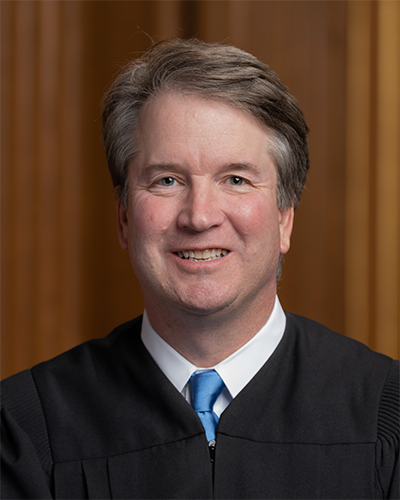Appeals challenge dismissal of ethics complaints against Kavanaugh

Justice Brett Kavanaugh.
At least two appeals are challenging the dismissal of 83 ethics complaints against U.S. Supreme Court Justice Brett Kavanaugh.
One appeal was filed by New York lawyer Jeremy Bates, a member of the professional ethics committee of the New York City Bar Association, the National Law Journal reports. The other was filed by Massachusetts resident Paul Horvitz, a financial editor.
The complaints stemmed from statements Kavanaugh made during his confirmation hearing. Some argued Kavanaugh made false statements under oath. Others said he made inappropriate partisan statements, or that he treated members of the Senate Judiciary Committee with disrespect.
The Judicial Council of the Denver-based 10th U.S. Court of Appeals ruled in December that it had no jurisdiction because the federal law governing judicial misconduct complaints does not apply to U.S. Supreme Court justices.
Bates’ appeal argues jurisdiction should be determined based on the time the complaint was filed. Kavanaugh was still a judge on the U.S. Court of Appeals for the D.C. Circuit when Bates filed his complaint. The complaints had been first filed with the D.C. Circuit, but Chief Justice John G. Roberts Jr. transferred them to the 10th Circuit judicial council after Kavanaugh’s confirmation to the U.S. Supreme Court.
Horvitz’s appeal argues the 10th Circuit judicial council can still conduct a fact-finding inquiry, even if it cannot take corrective action because of Kavanaugh’s elevation. If the judicial council doesn’t act, the complaint should be forwarded to the Judicial Conference of the United States, the policy-making body of the federal courts, Horvitz argues.
University of Pittsburgh law professor Arthur Hellman describes the usual complaint and appeal process in federal judicial ethics cases. First, he tells the National Law Journal, a complaint is filed with a circuit’s chief judge, or the chief judge initiates a complaint. The chief judge then takes action, and any appeal is filed with the circuit’s judicial council. In some instances, further appeal is allowed to the Judicial Conference’s Committee on Judicial Conduct and Disability.
When the complaints against Kavanaugh were transferred to the 10th Circuit, the judicial council took on the role usually played by the chief judge, Hellman said. The complaint rules don’t address the procedural appeals route in such a situation.
New York University law professor Stephen Gillers told the National Law Journal that the 10th Circuit judicial council could review appeals, just as a court sometimes reconsiders one of its decisions. If an appeal is rejected, the next step is the Judicial Conference committee, he said.



